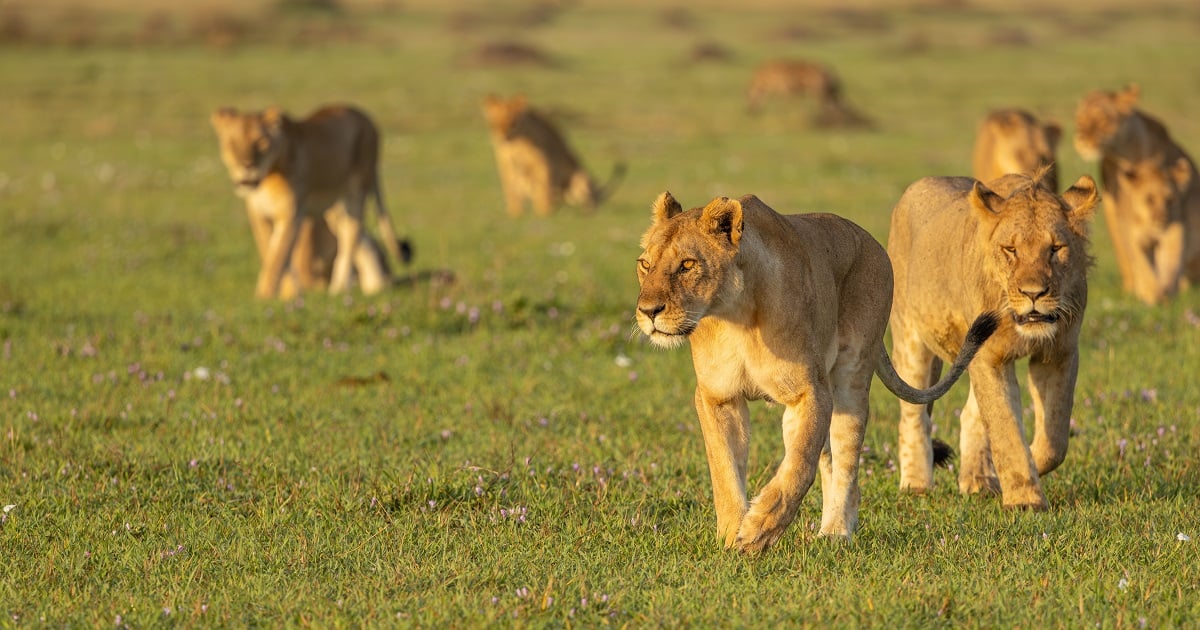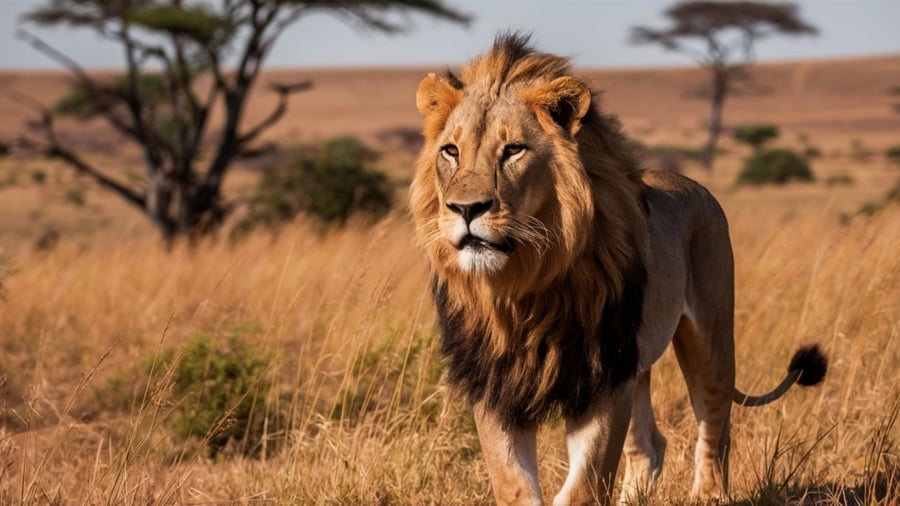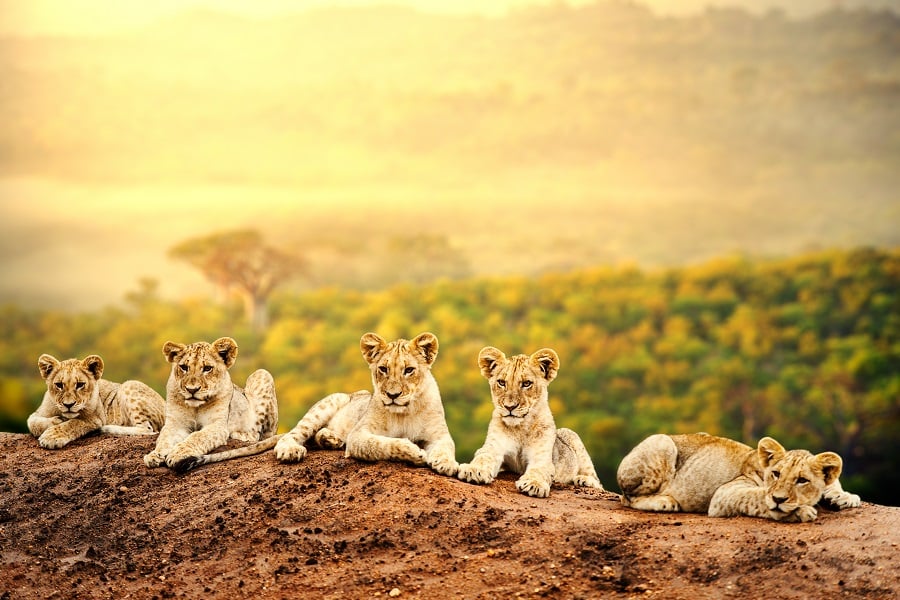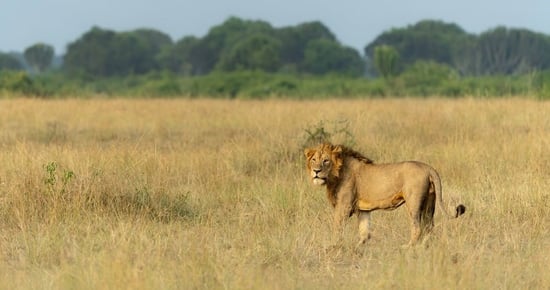
Lion facts
Common name: Lion
Scientific name: Panthera leo
Distribution: Africa, Asia
Here are some fierce facts about lions!
Lions are the second largest big cats after tigers. There are two subspecies left in the world today - the African lion and the Asiatic lion.
There are 600 Asiatic lions left in the world - more than 300 of them live outside the Gir Forest, India protected area which makes the species at great risk of extinction. And fewer than 30,000 African lions in Sub-Saharan Africa left in the wild.
Lions are a keystone species. They are important predators – the only wild animals in Africa big enough to bring down big herbivores like elephants and giraffes. If herbivore populations are left unchecked there is less food available for all animal populations – including people. Lions also help keep herbivore herds healthy as they usually prey on the sickest, weakest, and oldest animals.
African lions usually live in ‘prides’ – family groups of, on average, 10 to 15 animals. They can grow up to three metres long from head to tail. Lions are heavy animals weighing around 150 to 250 kilograms with males tending to be heavier than females.


Lions are sentient beings – they think, feel, and have unique personalities
- Many animal sentience scientists suspect that lions are the most intelligent big cats. They think this because unlike most big cats, lions live in 'prides', meaning they have to figure out how to work together, in complex social groups.
- A lion’s yawn is contagious. If a lion sees a fellow lion yawning, they are likely to yawn too. This is known as yawn contagion and may be a sign of empathy in lions.
- Lions all have unique personalities, and their personality can impact their welfare. For example, shy lions are less able to cope in captivity, perform fewer species-typical behaviours, and are more likely to perform abnormal stereotypic behaviours, compared with bold individuals.
- African lion cubs kept in wildlife tourism interaction facilities can show a range of behaviours indicating fear, stress and anxiety, including trembling, cage biting, and abnormal levels of inactivity.
- African lions are really good at solving puzzles, and will quickly learn how to access puzzle boxes to access a tasty treat.
- A lion can learn how to solve a problem, just by watching another lion do it. Social facilitation like this is rarely seen in the animal kingdom.
- Lions are great at cooperating and will often work together to hunt. Did you know, that they can also cooperate to solve a problem? Researchers have found that lions will happily pair up to solve a problem and access a food reward.
- Lions lick one another and rub heads together to reinforce social bonds. These behaviours help lions create and maintain social bonds, mostly between females.
